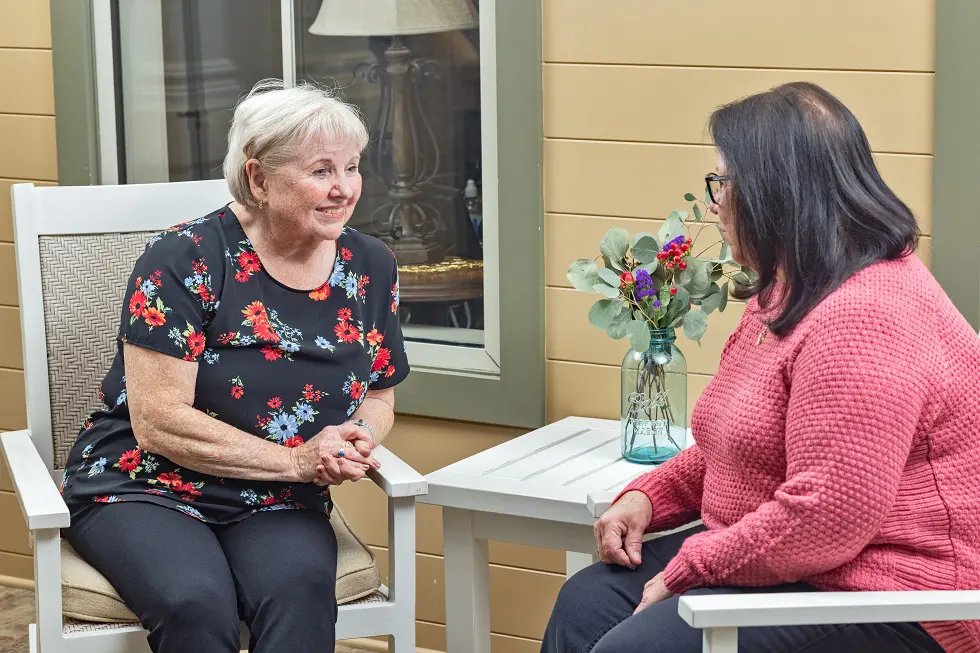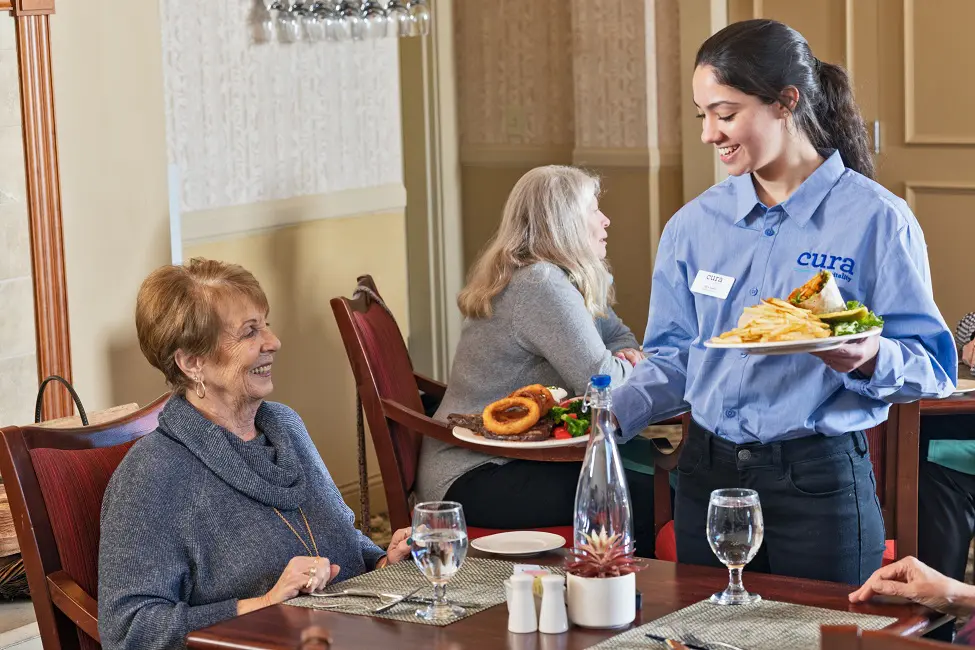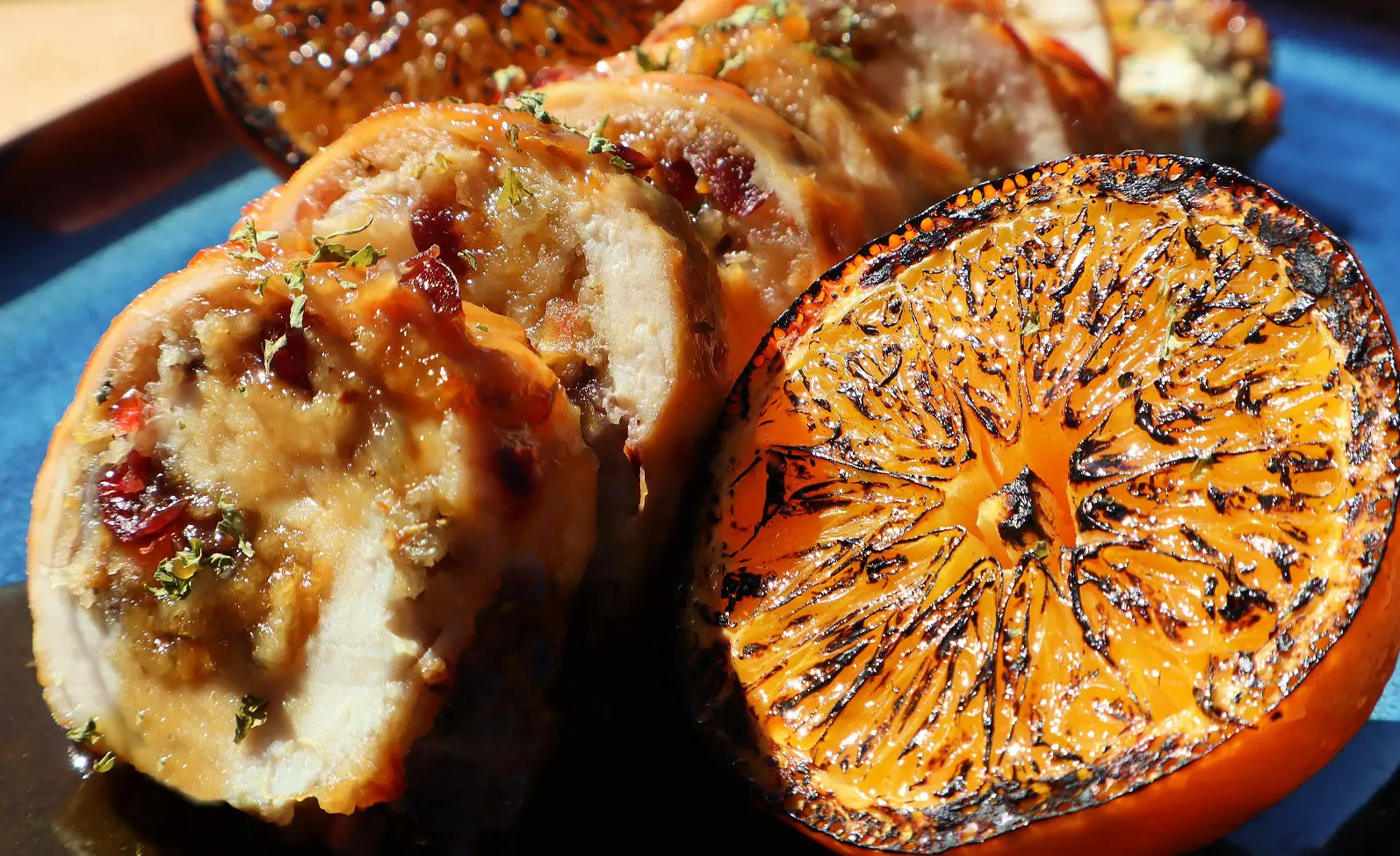Residents with Alzheimer’s Disease and related Dementias are dining gracefully thanks to Providence Point and Cura Hospitality! In observation of June’s Alzheimer’s & Brain Awareness Month, Cura’s signature Connections Memory Support Dining Program was added to the newly renovated Providence Point Maple and Cedar memory support neighborhoods which offer progressive methods to engage residents, chef-inspired culinary innovations and in person training so that memory-impaired residents can enjoy a meal with dignity!
Cura is proud to be a part of the dining innovation with Providence Point, incorporating Connections that offers multiple tools to enhance the lives of memory impaired residents. Conversation Starters, one of the most popular tools, helps dining staff caring for memory-impaired residents generate a meaningful conversation. The cards are designed as a series of 5-by-8-inch index cards of full-color nostalgic pictures on one side and questions on the other. According to Cura Food Service Director Cheryl Torre-Rastetter who manages the Providence Point dining team for this continuing care retirement community in Pittsburgh, PA, “My supervisor Megan Hulick went a step further and created Pittsburgh Pirates Baseball and Pittsburgh Steelers Football conversation starters.” Dining team members ask questions about the sports teams, what is the significance of the colors black and gold, the terrible towel and favorite players. “They are a huge hit with residents and staff. We have many younger people who work with us and it has encouraged residents to share their life experiences with them.”
The sweet smells of homemade pastries is another way to stimulate appetite for residents with Dementia, who commonly lose interest in food, or refuse to eat. The practice is known as aroma therapy, or scent-scaping, an intentional at-home self-care practice, which relators also use to help sell a home. At 2 p.m. chefs will freshly bake menu items from Cura’s Handcrafted Delights, an enriched snack program which uses real food vs. supplements. Snacks such as cinnamon rolls, cookies and scones delight residents and help to create a positive at home dining experience that makes them want to gather and more importantly, eat! “We offer small portions of these items, keeping snack time nourishing without the use of chemically enhanced supplements on the Memory units,” says Ms. Torre-Rastetter.
Ms. Torre-Rastetter and her team add the finishing touches to the at-home dining rooms with tablecloths, centerpieces and blue dinner plates. “We changed to blue dinner plates to stimulate the appetite and provide contrast to the food. We also prepare Cura’s Puree Creations, another dining component that meets the challenges that healthcare providers have with residents as they progress through the stages of Dementia, where swallowing difficulties become more common,” she says. Through Puree Creations, Cura’s goal is to create the puréed version of whatever is on Cura’s “Always Available” menu, be it sandwiches, fish, pie, or cookies. By using artful piping techniques, the culinary team creates an identical version, nourishing patients with real foods, freshly prepared and attractively structured.
“Providence Point has been such a huge supporter of Cura’s Connections program, and as we know, partnerships are the key to success for positive resident outcomes,” says Ms. Torre-Rastetter.


Contact: Grace Hoyer, Manager of Public Relations and Communications



